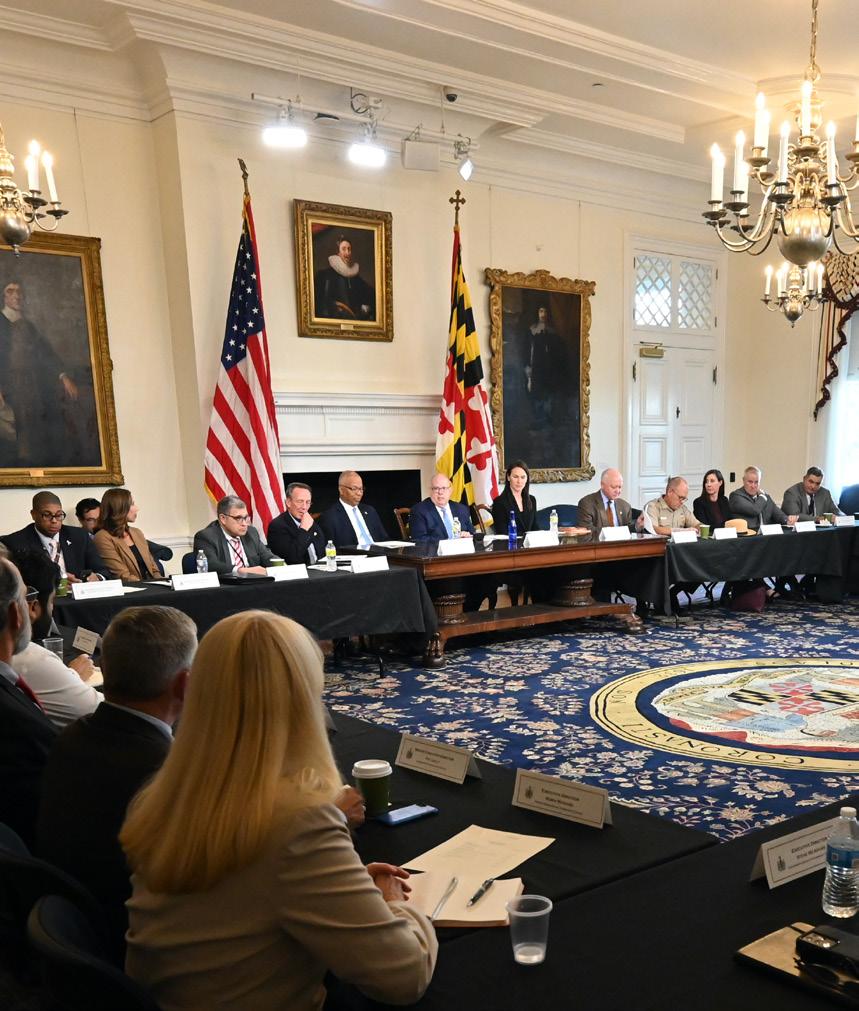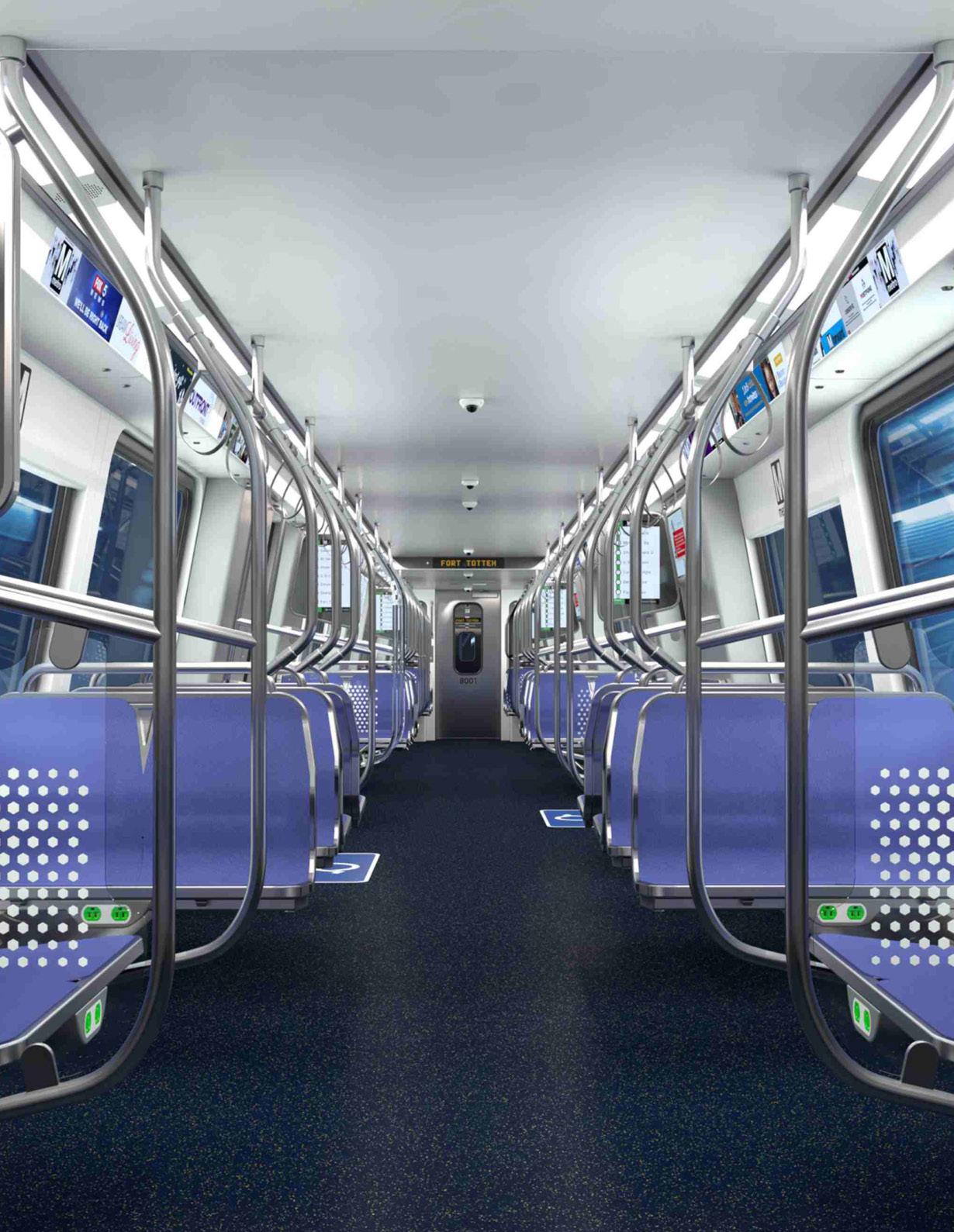
5 minute read
Eye on Annapolis
Take a closer look at some of the bills that passed in 2022
Chapters 62/63 – Economic Development - Western Maryland Economic Future Investment Board and Senator George C. Edwards Fund - Establishment This bill establishes the Western Maryland Economic Future Investment Program and Board and the Senator George C. Edwards Fund. The Tri-County Council for Western Maryland must staff the board and administer the fund. The purpose of the fund is to provide grants and loans for capital infrastructure projects and business development projects that improve economic conditions in the region. From fiscal 2024 through 2026, the governor must annually appropriate at least $10 million to the fund in the state operating or capital budget.
Chapter 116 – Maryland Department of Commerce - Reporting Requirements and Purple Line Construction Zone Grant Program - Alterations This departmental bill expands the definition of “economic development program” for the purposes of data collection, tracking, and reporting requirements under the Maryland Jobs Development Act. The bill streamlines and consolidates the department’s reporting requirements. The bill also alters the Purple Line Construction Zone Grant Program to enable Montgomery and Prince George’s counties to administer grants to businesses impacted by the construction of the Purple Line.
Chapter 136 – Economic Development - More Jobs for Marylanders Program - Extension and Alterations This administration bill extends enrollment in the More Jobs for Marylanders Program for two additional years to June 1, 2024. The bill also alters the program for businesses enrolling on or after June 1, 2022, in the following ways: • The position must pay at least 150% of the state minimum wage to be eligible to receive the tax credit; • Businesses in Tier 1 jurisdictions must create 10 new jobs (increased from 5) and businesses in Tier 2 jurisdictions must create 20 new jobs (increased from 10) in order to be eligible for the credit; • The tax credit will be 4.75% rather than 5.75%; • Businesses in Tier 2 jurisdictions will only be eligible to receive the credit for five years instead of 10; • All other benefits (sales and use tax refund, property tax credit,
and fee waivers) have been eliminated. Businesses enrolling on or after June 1, 2022, will only be eligible for the income tax credit.
Chapters 248/249 - Economic Development – Maryland E–Nnovation Initiative Program – Qualifying Donations Lowers the minimum threshold – to $200,000 – for a qualified donation or pledge made to a research endowment of a nonprofit institution of higher education that has an annual unrestricted current funds budget of less than $250 million for purposes of the Maryland E-Nnovation Initiative. The donation may be bundled with other qualified donations to meet the $200,000 threshold.
Chapters 258/259 – Income Tax - Theatrical Production Tax Credit This bill creates a refundable credit against the state income tax for 25% of qualified theatrical production costs incurred in Maryland. The Department of Commerce is required to administer the credit and may award a maximum of $5 million in credits in each fiscal year.
Chapter 323 – Income Tax - Film Production Activity Tax Credit - Digital Animation Projects This bill expands eligibility of the film production activity tax credit to include digital animation projects. A digital animation project is the creation, development and production of computer-generated animation content for distribution or exhibition to the public.
Chapter 358 – Winery and Vineyard Economic Development Grant Program This bill establishes the Winery and Vineyard Economic Development Grant Program in the Department of Commerce. The program provides financial assistance to individuals and corporations to establish a new winery or vineyard in the state or complete capital improvements at an existing winery or vineyard. For each fiscal year, the governor must include in the annual budget bill an appropriation of at least $1 million to Commerce to award grants under the program.
Chapters 461/462 — Alcoholic Beverages – Maryland Alcohol Manufacturing and Promotion This bill establishes the Advisory Commission on Maryland Alcohol Manufacturing (ACMAM) and the Maryland Alcohol Manufacturing Promotion Fund (MAMPF) in the Department of Commerce. The comptroller generally must distribute alcohol tax revenues
from alcohol produced by breweries, distilleries, and wineries in Maryland to MAMPF. The secretary of Commerce may award grants from MAMPF to nonprofit organizations and state or local governmental units for promoting state breweries, distilleries, and wineries, as specified. ACMAM is the successor to the Advisory Commission on Maryland Wine and Grape Growing, which was repealed. The Maryland Wine and Grape Promotion Fund (MWGPF) was also repealed, and revenue generated from the tax on wine produced at wineries licensed in the state is no longer distributed to MWGPF. Money in MWGPF at the end of June 30, 2022, must be transferred to MAMPF.
Chapter 466 – Child Care Capital Support Revolving Loan Fund - Established This bill establishes a Child Care Capital Support Revolving Loan Fund to provide no-interest loans for capital expenses to child care providers who participate in the Child Care Scholarship Program. The fund is a special, nonlapsing fund administered by the Department of Commerce with support from the Maryland State Department of Education. For fiscal 2023, the governor must include in the annual budget bill an appropriation to the fund of $15 million. For fiscal 2024, the governor must appropriate $10 million.
Chapter 485 – Maryland New Start Act of 2022 This bill establishes the Maryland New Start Grant Program in the Maryland Department of Labor (MDL) and the Maryland New Start Microloan Program, along with a non-lapsing special fund, in the Department of Commerce. MDL must award grants to at least five eligible organizations to create or support existing entrepreneurship development programs that assist formerly imprisoned individuals or individuals approved for release by a correctional facility. The governor must include an appropriation of at least $300,000 to the Maryland New Start Microloan Fund and at least $200,000 for the Maryland New Start Grant Program in the annual budget bill in fiscal years 2024 through 2028.
Chapter 732 – Economic Development - Enterprise Zone Program - Alterations This bill alters the Enterprise Zone program by (1) altering the authority of the secretary of Commerce to designate areas as enterprise zones by limiting the size of any expansion to 25%; (2) altering the definitions of “focus area employee” and “qualified employee” for the income tax credit; (3) establishing the purpose of the program; and (4) altering certain eligibility and reporting requirements.

MARYLAND








